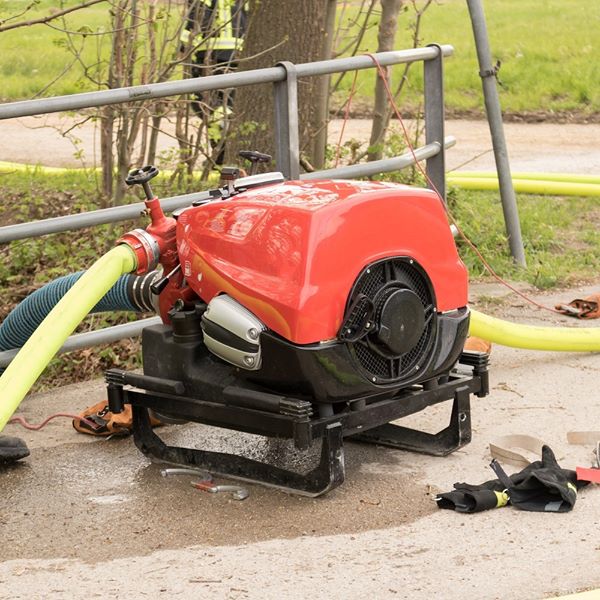|
Flood Recovery: Tips for Safely Using Pumps When Flooding Occurs
If you have experienced flooding, you know that a water pump is an important part of the clean-up process, helping move gallons of water quickly and efficiently to dry out flooded basements and assist contractors on job sites. “These pumps are powerful and can speed up a cleanup job after a flood,” said Kris Kiser, President, and CEO of the Outdoor Power Equipment Institute (OPEI), an international trade association representing power equipment, small engine, utility vehicle, golf car, and personal transport vehicle manufacturers and suppliers. “ Due to recent rains and floods across the United States, OPEI offers these safety reminders. It’s important to use the right pump for the water and debris that you are trying to clear. There are four basic types of pumps: A dewatering pump sucks in water through an inlet valve and ejects it from a discharge valve. They have an inlet size ranging in size from 1 to 4 inches. A 4-inch dewatering pump will finish a job 4 times faster than a 1-inch pump. A semi-trash pump is used to pump clear or slightly muddy and sandy water. You will want to use a hose with a strainer, so the hose doesn’t get clogged with items too big to pass through. A trash pump is made to handle debris and solids, such as leaves, pebbles, and twigs. These pumps have larger impellers and leave debris intact. Use a hose with a strainer for a trash pump, so items that are too large don’t enter. Diaphragm pumps are most commonly used to pump sludge and extremely abrasive liquids. The pump has a diaphragm which is pushed up and down, creating a vacuum effect that draws in water. Review the manual and manufacturer’s directions, following them carefully. Make sure all safety guards and shields are in place while operating your water pump. Never use a pump in a flammable or explosive environment. Never pump substances that your pump isn't designed to cope with. Acids, corrosive substances and flammable materials should not be pumped with an ordinary water pump. If in doubt, refrain from pumping. Don’t run gasoline-fueled engine indoors. If you must use the pump indoors, ventilate the area to the outside and seal it off from the rest of the building. Never leave any pump in a confined space where heat can build up. Keep the pump at least 3 feet away from walls and other obstructions so it can ventilate. If a pump becomes overheated, switch it off and allow it to return to a safe temperature before using again. Regular inspection and maintenance will make your pump last longer. Always fuel any gasoline-powered pump with E10 or less. It is illegal to use gasoline with more than 10 percent ethanol in a small engine like your pump, and higher ethanol blended fuels may damage or destroy small engine equipment. Remember to flush the pump case with clean fresh water, then completely drain to prevent damage from freezing. Cover the intake and discharge ports to prevent the entry of debris during storage. About OPEI The Outdoor Power Equipment Institute (OPEI) is an international trade association representing power equipment, small engine, utility vehicle, golf car, and personal transport vehicle manufacturers and suppliers. OPEI is the advocacy voice of the industry, and a recognized Standards Development Organization for the American National Standards Institute (ANSI) and active internationally through the International Standards Organization (ISO) and the International Electrotechnical Commission (IEC) in the development of safety and performance standards. OPEI is managing partner of GIE+EXPO, the industry’s annual international trade show, and the creative force behind the environmental education program, TurfMutt.com. OPEI-Canada represents members on a host of issues, including recycling, emissions and other regulatory developments across the Canadian provinces. For more information, go to www.opei.org
1 Comment
9/12/2022 04:21:26 pm
I appreciate that you explained that a quick process of water removal is the benefit of dewatering pumps. My uncle mentioned the other night that he and his business partner were hoping to find dewatering pumps for the preparation at their residential project site, and he asked if I had any idea what would be the best option to consider. I'm thankful for this informative article, I'll tell him that it will be much better if they consult a dewatering pumps company as they can answer all their inquiries.
Reply
Leave a Reply. |






 RSS Feed
RSS Feed